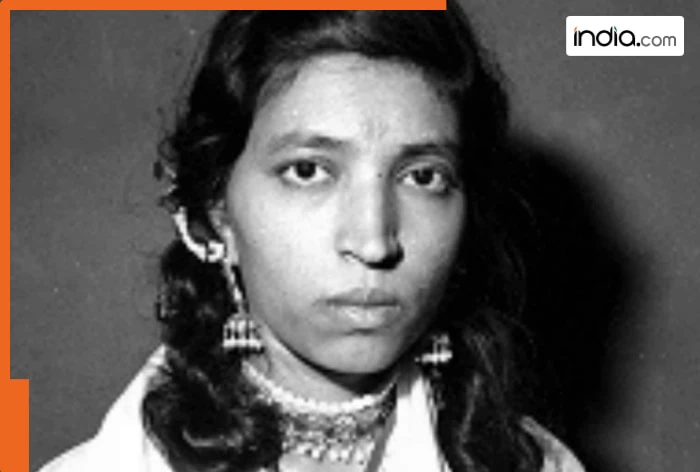Between 1950 and 1970, the golden age of Hindi cinema echoed with the voices of Lata Mangeshkar and Mohammed Rafi. Their songs played on every radio station, at every celebration, and became an integral part of India’s musical identity.
But there was another voice, soaked in simplicity, pain, and raw emotion-that once shared the stage with these legends. Her name was Mubarak Begum.
Where did her journey in music begin?
Mubarak Begum began singing for All India Radio in her childhood. Her first break in films came in 1949, with the movie Aiye, where she sang “Mohe Aane Lagi Angdaayi” and also shared a duet with Lata Mangeshkar, “Aao Chale Sakhi Wahan”.
The years that followed brought her moments of glory. In Devdas (1955), she gave us “Woh Na Aayenge Palat Kar”, a haunting melody. She moved hearts with “Hum Haal-e-Dil Sunayenge” in Madhumati (1958). But it was her soulful rendition of “Kabhi Tanhaiyon Mein Yun” from Hamari Yaad Aayegi (1961) that became her most iconic song.
How many songs did she sing?
In her lifetime, Mubarak Begum sang in over 110 films, lending her voice to more than 170 songs. Her voice had sweetness, pain, and purity, yet, as the industry evolved, support dwindled. New trends came. New voices took over. Work dried up.
By the 1970s, she had almost entirely vanished from the playback scene. But she never gave up her love for music.
What happened to her later in life?
Age caught up. Her health declined. So did her financial condition. She lived with her son, daughter-in-law, and granddaughter in a tiny one-room flat in Mumbai’s Jogeshwari area.
Her family barely managed to survive. Her only steady income came from her late husband’s meagre pension. Her son worked occasionally as a driver, and her daughter-in-law, Zarina Hussain Sheikh, became her full-time caregiver.
Did anyone from the film industry help her?
When things got worse, the family had to ask for help. And surprisingly, Salman Khan was the only person from the industry who came forward regularly. Zarina shared with the media, “Salman Khan was the only one who kept helping us and bore all of her medical expenses.”
In 2016, even then-minister Vinod Tawde extended a hand. While government aid didn’t materialise, a trust run by his associates helped with some financial relief.
How did her story end?
Mubarak Begum breathed her last on 18 July 2016, at the age of 80. No grand tributes. No star-studded send-off. Just silence.
The voice that once brought emotion to the silver screen slipped away quietly, like the last note of an old, forgotten song.
